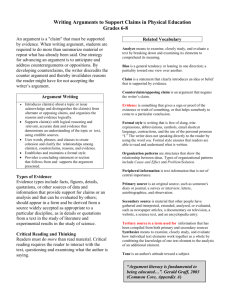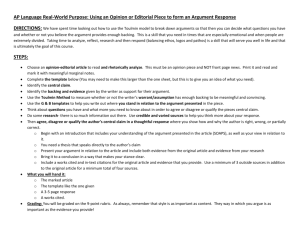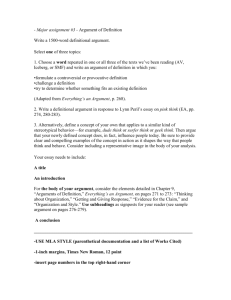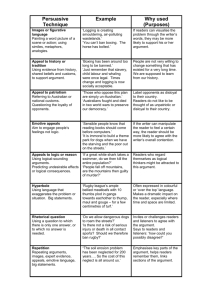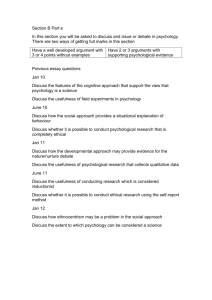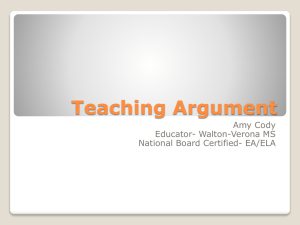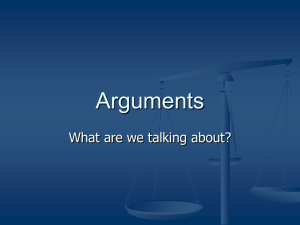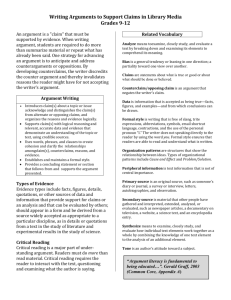Argument Writing
advertisement
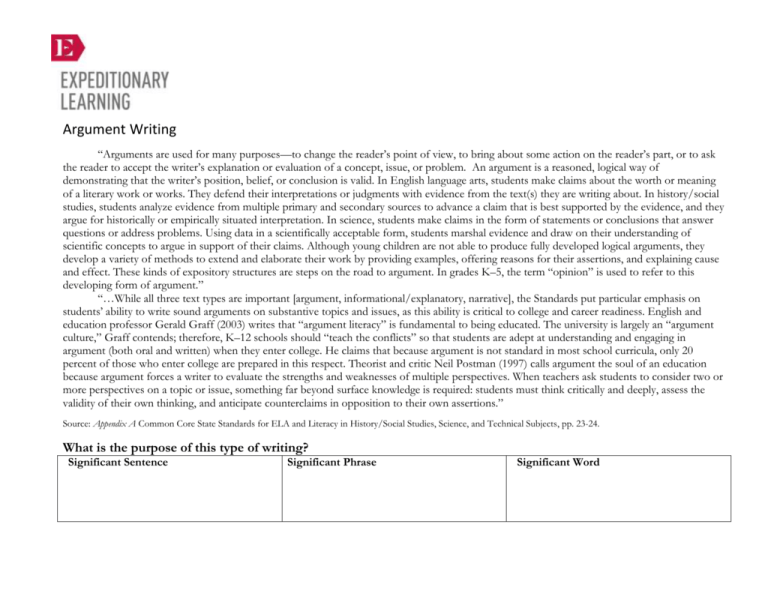
Argument Writing “Arguments are used for many purposes—to change the reader’s point of view, to bring about some action on the reader’s part, or to ask the reader to accept the writer’s explanation or evaluation of a concept, issue, or problem. An argument is a reasoned, logical way of demonstrating that the writer’s position, belief, or conclusion is valid. In English language arts, students make claims about the worth or meaning of a literary work or works. They defend their interpretations or judgments with evidence from the text(s) they are writing about. In history/social studies, students analyze evidence from multiple primary and secondary sources to advance a claim that is best supported by the evidence, and they argue for historically or empirically situated interpretation. In science, students make claims in the form of statements or conclusions that answer questions or address problems. Using data in a scientifically acceptable form, students marshal evidence and draw on their understanding of scientific concepts to argue in support of their claims. Although young children are not able to produce fully developed logical arguments, they develop a variety of methods to extend and elaborate their work by providing examples, offering reasons for their assertions, and explaining cause and effect. These kinds of expository structures are steps on the road to argument. In grades K–5, the term “opinion” is used to refer to this developing form of argument.” “…While all three text types are important [argument, informational/explanatory, narrative], the Standards put particular emphasis on students’ ability to write sound arguments on substantive topics and issues, as this ability is critical to college and career readiness. English and education professor Gerald Graff (2003) writes that “argument literacy” is fundamental to being educated. The university is largely an “argument culture,” Graff contends; therefore, K–12 schools should “teach the conflicts” so that students are adept at understanding and engaging in argument (both oral and written) when they enter college. He claims that because argument is not standard in most school curricula, only 20 percent of those who enter college are prepared in this respect. Theorist and critic Neil Postman (1997) calls argument the soul of an education because argument forces a writer to evaluate the strengths and weaknesses of multiple perspectives. When teachers ask students to consider two or more perspectives on a topic or issue, something far beyond surface knowledge is required: students must think critically and deeply, assess the validity of their own thinking, and anticipate counterclaims in opposition to their own assertions.” Source: Appendix A Common Core State Standards for ELA and Literacy in History/Social Studies, Science, and Technical Subjects, pp. 23-24. What is the purpose of this type of writing? Significant Sentence Significant Phrase Significant Word



